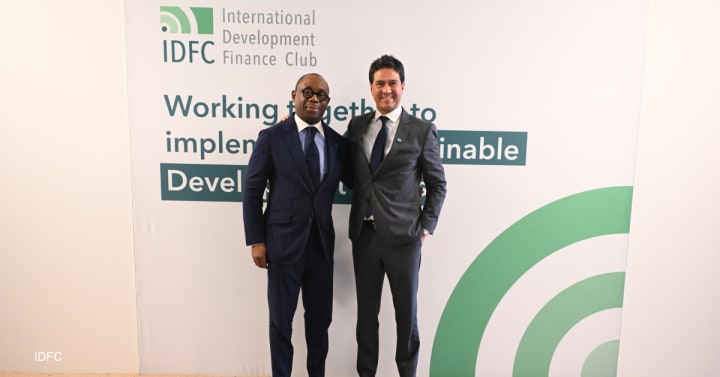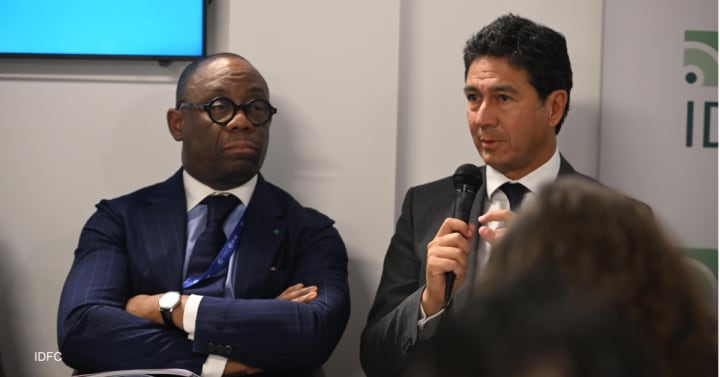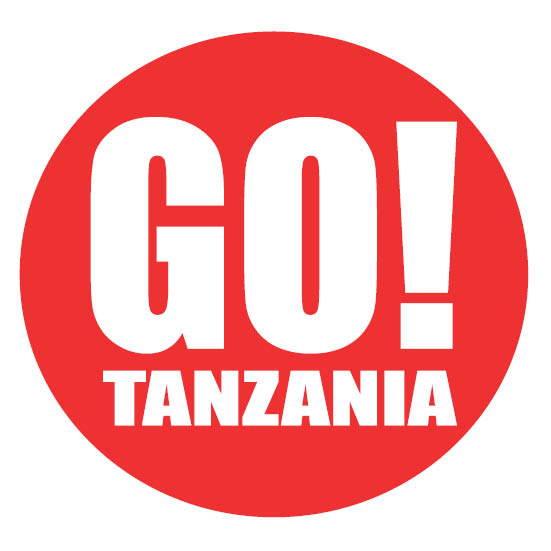
Public development banks, or PDBs, have a unique role to play in helping to reorient economies toward the Sustainable Development Goals and the objectives of the Paris Agreement. PDBs can do so by addressing market failures, mobilizing governments and public institutions, financial markets, the private sector, civil society, and by linking global issues with local solutions. They can contribute to the reconciliation of short-term priorities with longer-term visions and impacts on the people and the planet.
IDFC’s main objectives include knowledge sharing and capacity building, advocacy, cooperation between members, and access to project preparation and project financing, as well as cooperation with partners within the financial ecosystem.
For the fourth consecutive year, the club coordinated a pavilion at the 28th United Nations Climate Change Conference, or COP 28, providing a great opportunity to showcase how IDFC is implementing these objectives.
Contributing to the global objectives to deliver green finance
In 2022, IDFC reported a record high of $288 billion in total green finance commitments, which represents a 29% increase from 2021. Cumulatively, green finance commitments by IDFC members surpassed $1.5 trillion since the Paris Agreement was signed in 2015. This reporting is based on a methodology, jointly developed by IDFC and multilateral development banks, called the Common Principles for Climate Finance Tracking. Constantly improved, the methodology is a good example of cooperation to reporting and transparency.
“IDFC Green Finance Mapping Report 2023”
For more than a decade, IDFC has conducted an annual mapping of member institutions’ green finance contributions.
Read the full report.
Mitigation finance reached $245 billion, the highest level to date, marking an increase of 31% over 2021. Adaptation finance also reached a record high, increasing 52% to $31.6 billion. The uptick in adaptation finance follows members’ commitment to increase their adaptation finance in the IDFC 2021 State of Ambition. At $78 billion in total renewable energy finance in 2022, IDFC contributes a significant portion of the annual average of $494 billion in renewable energy finance tracked globally. IDFC members almost doubled their investments in renewable energy since the Paris Agreement.
The post-2025 climate finance dialogues of the UNFCCC
In the framework of the climate change negotiations, two ongoing processes are addressing the need for a new, scaled up, and impactful post-2025 financial regime for climate action. One is the establishment, prior to 2025, of a New Collective Quantified Goal, or NCQG, on climate finance, from a floor of $100 billion per year, taking into account the needs and priorities of low- and middle-income countries. The second one is the Sharm el-Sheikh dialogue aiming at exchanging views on and enhancing understanding of the scope of Article 2, paragraph 1(c), of the Paris Agreement about making all finance flows consistent with a pathway toward low greenhouse gas emissions and climate-resilient development.
As part of its advocacy objective, IDFC published an initial set of contributions at COP 28 to both the NCQG deliberations and the Sharm el-Sheikh dialogue.
The past decade has seen a substantial evolution of the objectives and scope of climate action within leading PDBs and other financial institutions. From a focus on climate finance volume — “doing good things” — it evolved to a more comprehensive climate mainstreaming approach — “doing things right.” And, in the past few years, to a more ambitious and encompassing alignment approach to the Paris Agreement — “doing the right things.”
Adopting a comprehensive approach for the future regime for climate action is key, combining quantitative and qualitative aspects. It involves embracing the imbricated and complementary challenges, such as dramatically increasing volumes serving low-carbon and resilient pathways, addressing loss and damage, and reorienting existing financial capital and flows, which remain largely inconsistent with low-carbon and resilient countries’ development pathways. Another challenge is delivering climate finance dedicated to generating transformational impacts. In this regard, reinforcing the catalytic role of PDBs, in particular, at national and subnational levels, should be considered transformational. This can be done by strengthening their capital base, facilitating their access to concessional resources, or providing capacity support.

Supporting sustainable energy policies
Launched in 2019, the IDFC Facility is an operational and innovative tool to strengthen knowledge and leverage resources for IDFC members in the field of climate and nature. Supported by significant contributions from members and strategic partners, the facility is using these funds to strengthen the climate finance expertise and capacities of IDFC members, to institutionalize and facilitate collaborative work among members, to originate and develop joint climate projects, and to increase opportunities for members to access international climate finance. For example, the facility is leading trainings on climate and nature, and publishing a toolbox and programs for the members to access the Green Climate Fund.
The IDFC Facility has just been awarded a $800,000 grant by the Growald Climate Fund as the initial contribution to develop and implement a program for empowering public development banks in sustainable energy. This initiative aims to support PDBs in formulating and integrating sustainable energy policies and operational action plans.
PDBs have a huge potential to support the implementation of the Paris Agreement on climate. IDFC and its members, as the largest providers of public climate finance worldwide and leading contributors to the alignment of the financial system with climate, biodiversity, disaster risk reduction, and the SDGs, are entirely mobilized and committed to shaping a sustainable future.



 Serge Ekué
Serge Ekué 
